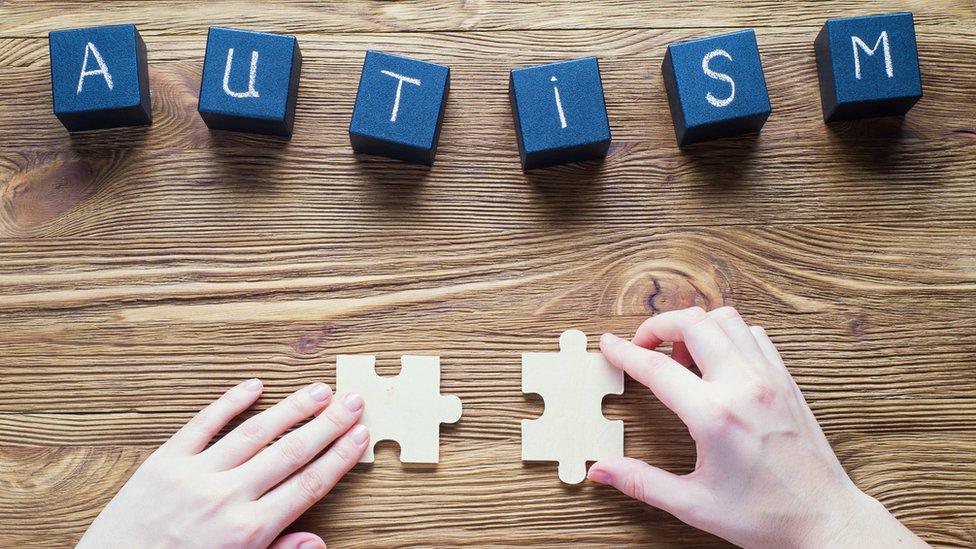Stigma of having autistic kids leaves South Asian mums isolated
- Published
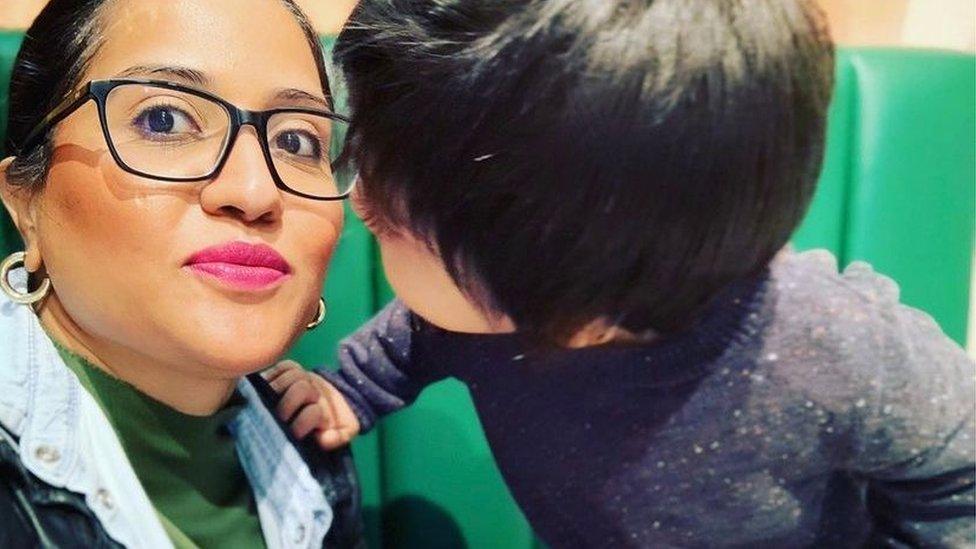
Habiba says women like her feel isolated and alone because autism is not discussed in the south Asian community
Sikh and Muslim mothers are trying to break the shame and stigma surrounding autism in their community.
They have described feeling socially excluded and say husbands and partners also need to take up caring duties.
Habiba, whose son is autistic, said: "It's really isolating and stressful as there is often gaslighting and unsolicited advice which can lead to feeling very lonely."
Three south Asian charities also say ignorance and myths need to be tackled.
Habiba does a lot of work in the South Asian community by networking with other women, listening to their experiences and signposting them to organisations which can help.
She says women tell her that they feel pressured to hide or downplay disabilities out of fear, shame or ridicule.
She said: "The burden falls on mothers as the responsibility often falls on them to care for their disabled children."
She added this also led to women experiencing mental health problems and marital strain.
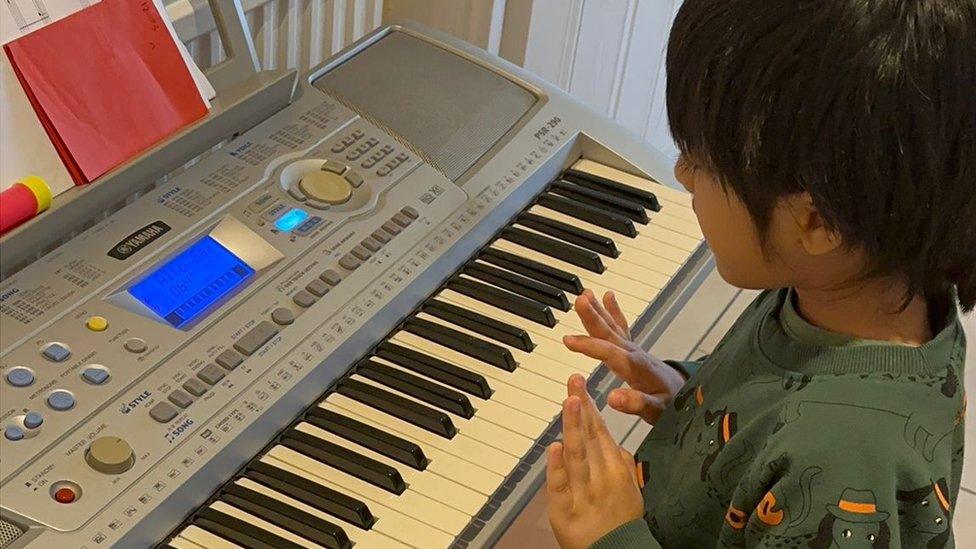
Habiba feels she has to stop going to social events because of comments made about her son
She often feels she has to exclude her son from social events "as people often say he's hyperactive and naughty".
Parveen Mahal, whose daughter is autistic, is the co-founder for the Sikh disability charity SEN Seva, in east London.
"Disabilities are often viewed as sources of shame or embarrassment, leading to social exclusion and discrimination," said Parveen.
"Many parents feel unwelcome in gurdwaras, fearing judgment and misunderstanding from the congregation especially when their children display signs of stimming (flapping hands, running up and down, humming), attributing this to being a naughty child or bad parenting," she said.
She recalls a session held at her charity where she was describing the ignorance and insensitivity faced by families like hers.
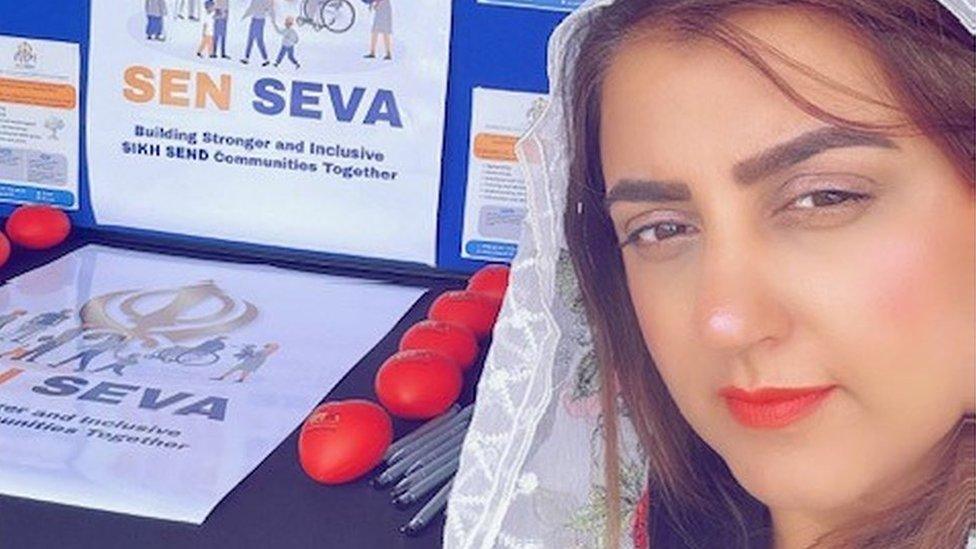
Parveen set up a charity to help families where the child or children have special needs such as autism
"Someone said to me 'your child's disability is the consequence of not being connected to God and not praying'.
"Such remarks, attributing disabilities to spiritual disconnect or parental neglect, only serve to deepen the wounds of parents already grappling with immense challenges."
These experiences are familiar to groups which work in the community.
Bibi Khan is the president at London Islamic Cultural Society and Mosque.
"We are very supportive of families who have children with autism, we engage with them and allow the children to be a part of the community," said Bibi.
"They are not treated or seen as different although we do have issues with some being very active and at times we are not able to restrict them in specific areas."
She admitted however, there were "individuals who are not familiar with an autistic child and on many occasions the child is seen as unruly or difficult".
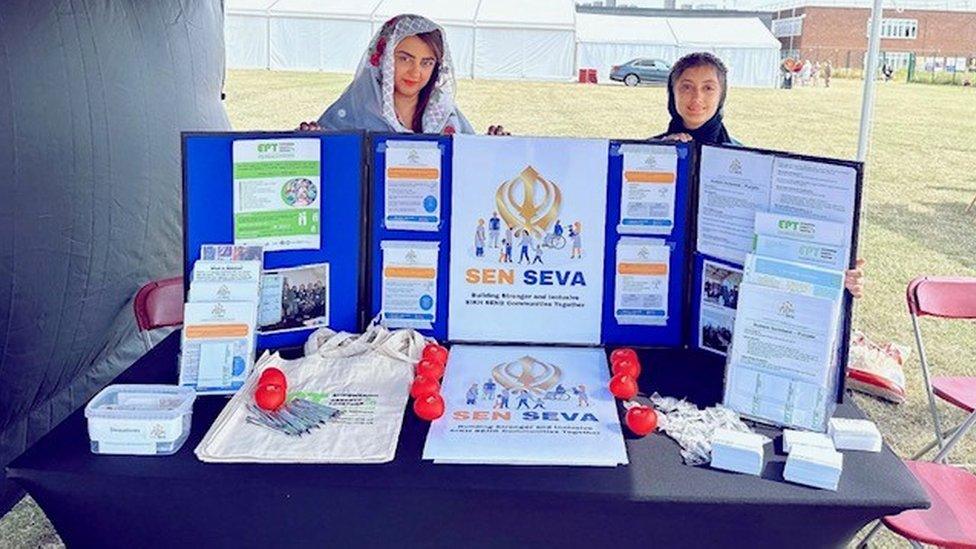
Parveen tries to dispel the myths such as autism being caused by parental neglect
She added: "There are some who do not want their children to mix with children with special educational needs (SEN) as they think their child will get infected.
"The stigma exists through ignorance and lack of awareness."
They involve the families by holding activities and work with Whittington Hospital to target their needs.
Another charity, Gurdwara Aid, has also noticed that neurodiversity and special educational needs (SEN) were "generally less well understood within the Sikh community".
Its co-founder, Mandip Singh, said: "There are many families that may feel it is difficulty to take a child that is autistic to the Gurdwara as it can become an ordeal to constantly monitor the child, in order keep them out of trouble, to draw attention to the child and family."
He added that larger gurdwaras were better resourced and were more likely to have a wellbeing programme that could help meet these needs.
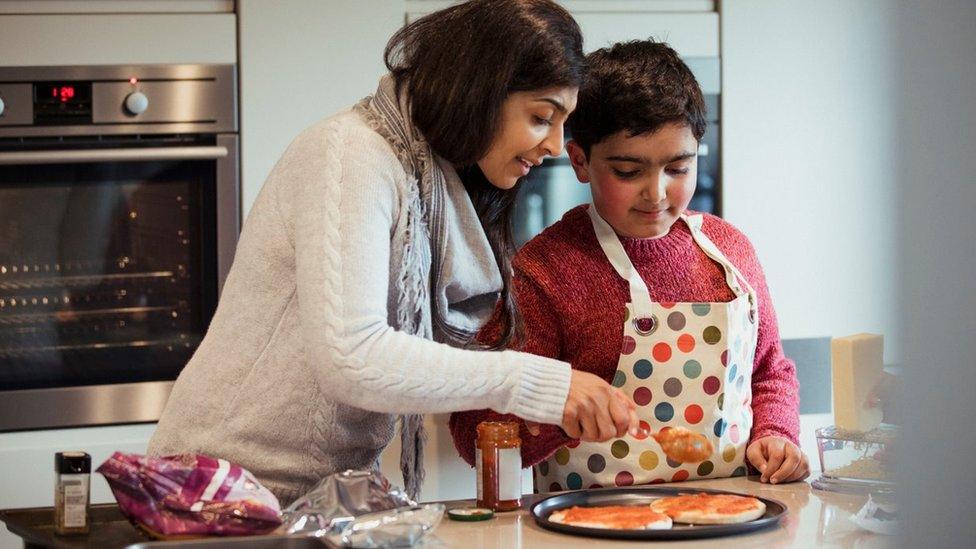
The National Autistic Society estimates there are around 700,000 people with autism in the UK
The National Autistic Society says at least one in 100 people in the UK are autistic, which is roughly about 700,000 people.
Evidence, research and evaluation manager at the charity, Matthew Swindells, said he was aware that "South Asian autistic people and their families are not getting the support they need, and often experience multiple layers of discrimination".
He added: "There is a definite need for education and awareness and to educate the community about the unique challenges faced by these families, and to fostering empathy and understanding."
He said as a result, the charity had started researching this area.
"We are currently in the process of exploring lived experiences, quality research and the best available guidance on the topic of autism, ethnicity and culture," he said.
"We want to fully understand the experiences and issues facing autistic people of the global majority including South Asian people, and to identify gaps in information."
Parveen added that she hoped her work would also help dispel some of these myths and help families feel less alone.
"It is time to break the silence and amplify the voices of those often marginalised and misunderstood," she added.

Listen to the best of BBC Radio London on Sounds and follow BBC London on Facebook, external, X, external and Instagram, external. Send your story ideas to hello.bbclondon@bbc.co.uk, external
- Published28 February 2024
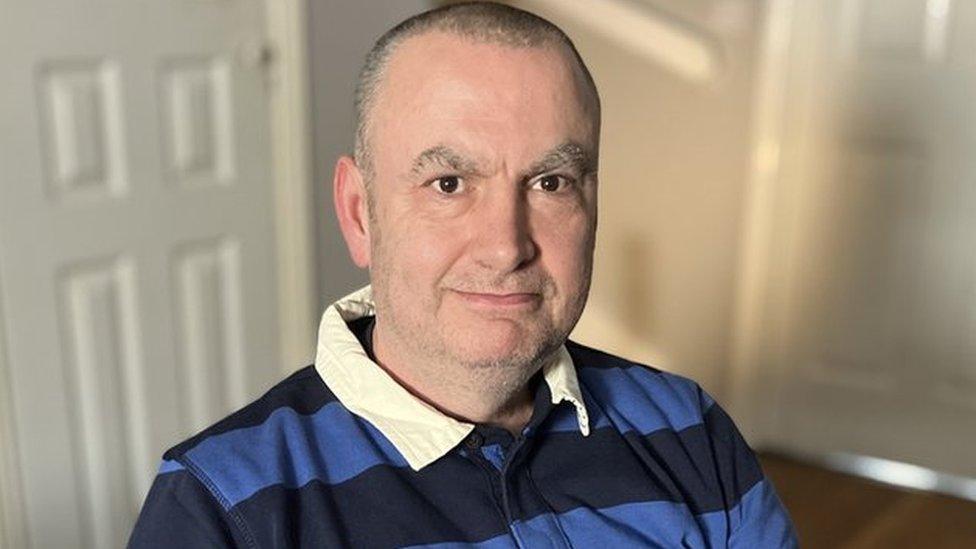
- Published16 August 2018
